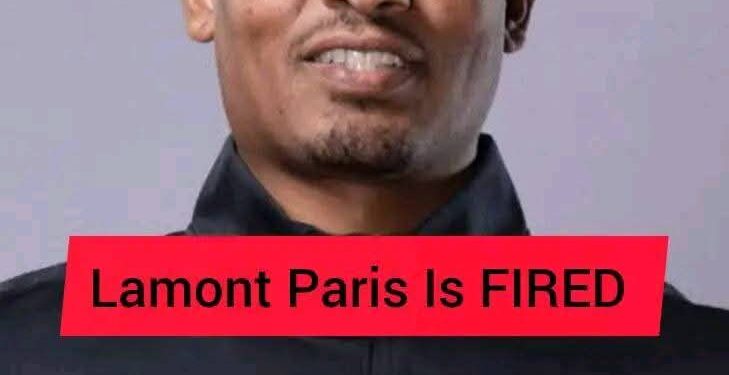SHOCKING EXIT: Lamont Paris FIRED as South Carolina Gamecocks Head Coach—3 Major Reasons Behind the Stunning Decision
After just two seasons in charge, the University of South Carolina opted to fire men’s basketball head coach Lamont Paris in a decision that shocked collegiate basketball. Athletic director Ray Tanner’s sudden announcement of the decision has put fans and commentators in a state of confusion. Paris, who was brought on board in 2022 to turn around a faltering Gamecocks program, is suddenly out of a position much sooner than most people anticipated. Although there were brief moments of promise during his tenure, growing pressure and unfulfilled expectations finally resulted in this shocking departure. What went wrong? Why did Southcarolina lose him.
First and foremost, Paris’ destiny was determined by their **lackluster on-court performance**. Expectations were cautiously optimistic when he was hired away from Chattanooga, where coach guided the Mocs to a trip in the NCAA Tournament. After Frank Martin left, South Carolina had suffered through years of mediocrity, and Paris was viewed as a coach who could turn things around by strategically recruiting and developing his players.
But the outcomes never came to pass. The Gamecocks had a miserable 11-21 record in his debut season, finishing close to the bottom of the SEC. Even though Year 2.
Key losses to inferior opponents, inconsistent offensive execution, and an inability to close out tight games became recurring themes. In a conference as competitive as the SEC, patience wears thin quickly—especially when rival programs like Alabama, Tennessee, and Auburn continue to dominate. South Carolina’s lack of progress in the win column made Paris’ position increasingly untenable.
The second major factor was **recruiting struggles**. While Paris was praised for his player development at Chattanooga, the transition to high-major recruiting proved challenging. South Carolina failed to land any program-changing prospects during his tenure, and the 2023 recruiting class ranked near the bottom of the SEC. In today’s college basketball landscape, success is often built through the transfer portal and elite high school talent—two areas where Paris’ staff struggled to gain traction. Compounding the issue, several key players entered the portal after the season, signaling potential unrest within the program. Without a clear influx of talent














